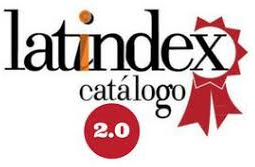| DERECHO HUMANO A LA EDUCACIÓN |
|
|
por Dasso, Carlos Alberto
Universidad Nacional de Lomas de Zamora
|
Dasso, Carlos Alberto (26-04-2006). DERECHO HUMANO A LA EDUCACIÓN.
HOLOGRAMATICA - Facultad de Ciencias Sociales UNLZ
Año III, Número 4
ISSN 1668-5024
URL del Documento : https://cienciared.com.ar/ra/doc.php?n=394
URL de la Revista : https://www.hologramatica.com.ar
|
|
|
RESUMEN:
El significado actual que tiene la afirmación de que la educación es un derecho humano, es que la misma tiene que dejar de ser un sistema desigualitario y de exclusión social, para lo cual es importante la participación de los actores sociales y políticos del pueblo, para desplazar a las corrientes neotutelares que instaron la cultura de la “excelencia” y de los “expertos” y han sido los principales responsables de la mercantilización de la educación y de la precarización y destrucción de la enseñanza pública. En ese sentido, es necesario recuperar el sentido público –político- de la educación, independizándola de las corrientes neotutelares y de los intereses particulares del mercado. Desde la perspectiva de los Derechos Humanos, la construcción de una sociedad democrática necesita hoy de una estrategia inclusión educativa, ya que sólo en ese marco es justo el reclamo del mejoramiento de la calidad educativa.
Para que esta estrategia de inclusión educativa sea asumida por todos los agentes de la enseñanza pública, por los alumnos y por toda la comunidad, es necesario la educación ciudadana en derechos humanos, la cual constituye hoy una obligación indelegable de todo Estado que aspire a construir una sociedad democrática, por tanto es un derecho que tiene que ser garantizado igualitariamente para todos los que viven en esta Nación.
|
|
| PALABRAS CLAVE: educación, libertad, inclusión |
|
|
|
ABSTRACT: The present meaning that has the affirmation of which the education is a human right, is that the same one must stop being a desigualitario system and of social exclusion, for which the participation of the social and political actors of the town is important, to move to the currents neotutelary that urged the culture of the "excellence" and of the "experts" and have been the main people in charge of the mercantilización of the education and the precarización and destruction of public education. In that sense, politician of the education, freeing it from the currents neotutelary and the particular interests of the market is necessary to recover the public sense -. From the perspective of the Human rights, the construction of a democratic society today needs a strategy educative inclusion, since only in that frame the reclamation of the improvement of the educative quality is right.
So that this strategy of educative inclusion is assumed by all the agents of public education, by the students and all the community, the citizen education in human rights is necessary, which today constitutes a indelegable obligation of all State that aspires to construct a democratic society, therefore is a right that it very egalitarianly has to be guaranteed for all those that they live in this Nation. |
|
| KEYWORDS: education, freedom, inclusion. |
|
|
Volver
|





